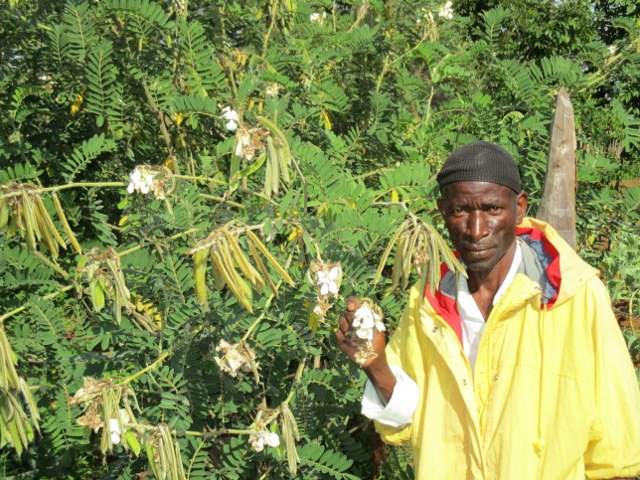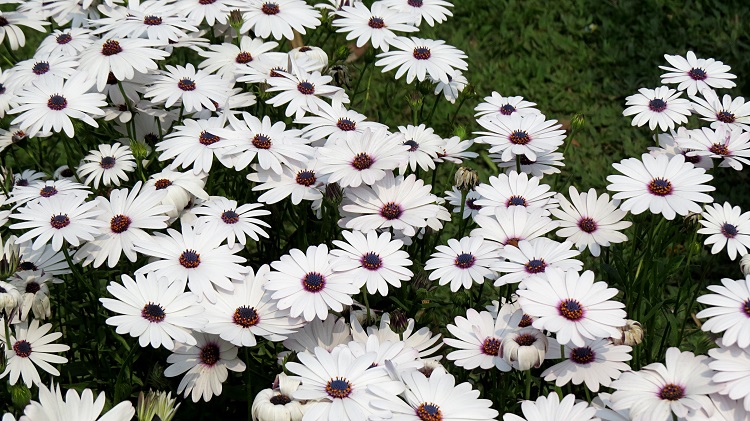
Control of pests is necessary for farmers to reduce crop losses, safeguard livestock and ensure that produce is protected once it’s been harvested and stored. For smallholder farmers in sub-Saharan Africa, severe insect damage, low yields and serious post-harvest loss are unfortunately all too common problems, and this is made worse by inadequate access to pest control technologies. One alternative is the use of locally grown pesticidal plants – plants with naturally occurring chemicals that deter or destroy pests. Such plants offer effective control against insect pests while having less impact on beneficial insects such as pollinators and natural enemies of pests, plus they are less costly than synthetic pesticides. An NRI-led project called OPTIONs (Optimising Pesticidal Plants: Technology Innovation, Outreach and Networks) aims to raise awareness about pesticidal plants and the advantages they have over synthetic pesticides to improve people’s livelihoods, and to deliver innovative ways to manage insect pests that are more agro-ecologically sustainable.
 With funding from the European Union's ACP Science and Technology Programme, OPTIONs has been operating over the last three years in four African countries (Kenya, Malawi, Tanzania and Zimbabwe) in partnership with many research and development organisations, universities and farmer organisations. The project is led by NRI’s Professor Phillip Stevenson, who, together with NRI’s Professor Steven Belmain, recently published an article in Outlooks on Pest Management providing an overview of progress in developing pesticidal plants in Africa and the further challenges and opportunities that exist in providing more agro-ecologically sustainable pest management.
With funding from the European Union's ACP Science and Technology Programme, OPTIONs has been operating over the last three years in four African countries (Kenya, Malawi, Tanzania and Zimbabwe) in partnership with many research and development organisations, universities and farmer organisations. The project is led by NRI’s Professor Phillip Stevenson, who, together with NRI’s Professor Steven Belmain, recently published an article in Outlooks on Pest Management providing an overview of progress in developing pesticidal plants in Africa and the further challenges and opportunities that exist in providing more agro-ecologically sustainable pest management.
 The project also supported the 2nd International Conference on Pesticidal Plants in February 2017, which was held at Victoria Falls, Zimbabwe and hosted by one of the OPTIONs partners, the University of Zimbabwe. More than 100 delegates from across sub-Saharan Africa were joined by plenary speakers from Europe, and North and South America to discuss recent advances in the evaluation and development of pesticidal plants, their uses, propagation and conservation efforts. Prof Stevenson says, “At one time, Africa was the home of commercial pesticidal plants, with Kenya once boasting 80% of the global market share for Pyrethrum, a natural pesticide made from the dried flower heads of certain species of Chrysanthemum. The appetite for development and commercialisation of new botanically active substances for pest control is regaining interest globally, owing to increasing limitations on the use of synthetic products. This conference supported African scientists, technologists and businesses in their ambition to help Africa continue to play a global role in the production of plant based insecticides.”
The project also supported the 2nd International Conference on Pesticidal Plants in February 2017, which was held at Victoria Falls, Zimbabwe and hosted by one of the OPTIONs partners, the University of Zimbabwe. More than 100 delegates from across sub-Saharan Africa were joined by plenary speakers from Europe, and North and South America to discuss recent advances in the evaluation and development of pesticidal plants, their uses, propagation and conservation efforts. Prof Stevenson says, “At one time, Africa was the home of commercial pesticidal plants, with Kenya once boasting 80% of the global market share for Pyrethrum, a natural pesticide made from the dried flower heads of certain species of Chrysanthemum. The appetite for development and commercialisation of new botanically active substances for pest control is regaining interest globally, owing to increasing limitations on the use of synthetic products. This conference supported African scientists, technologists and businesses in their ambition to help Africa continue to play a global role in the production of plant based insecticides.”
The conference sessions were live-streamed on YouTube and for anyone who missed the conference, you can find the entire proceedings archived on YouTube Channel ICPP2017. Conference delegates overwhelmingly voted to set up an International Society for Pesticidal Plants, and the OPTIONs team will be working to establish the Society over the next few months before the project officially ends. The beginnings of ICPP3 are already taking shape with a conference due to take place in four years’ time in Cameroon.
Links: Video of the entire ICPP2 conference can be found at YouTube channel ICPP2017 | ICPP2 book of abstracts | OPTIONs project website | ACP S&T Programme |
Stevenson, Philip C. and Belmain, Steven R. (2016) Pesticidal plants in African agriculture: Local uses and global perspectives. Outlooks on Pest Management, 27 (5):10. pp. 226-230.

